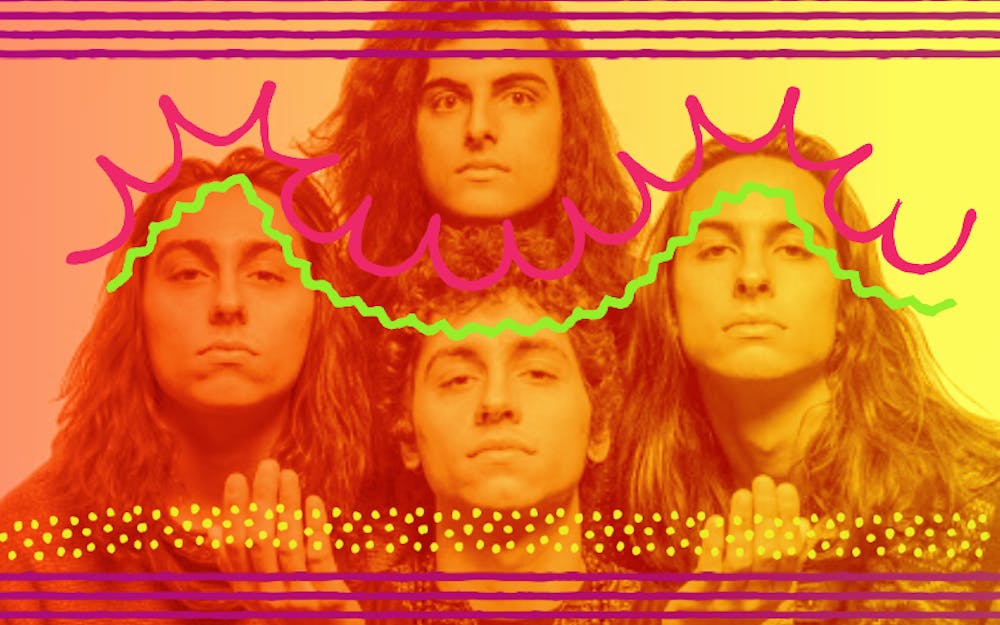No other artists have excited classic rock fans in recent years as much as Greta Van Fleet. On Oct. 9, they released their first new song in over a year, “My Way, Soon”, which is already charting at 38 on the Billboard 200 list. The tune is very refreshing both as a work of art and for its free–spirited message. With lyrics like “I’ve packed my bags and I’ve got my freedom” and “I’ll throw out the plans and live with no burden,” it reminds us that even in life’s worst moments, we can lift ourselves up and start anew.
GVF’s fame began in 2017 with their head–banging first single “Highway Tune” and they’ve been a huge success ever since. Claiming the top selling album in the US during the first week of their debut album Anthem of the Peaceful Army’s release, they went on to win Best Rock Album at the 2019 Grammys for their EP From the Fires, and currently have six songs that have placed in the top 20 chart positions of the Billboard 200. GVF’s accomplishments attest to their young talent, but more significantly, to how they clearly stand out in today’s climate: They share the concurrent explosiveness and rhythmic beauty of the '70s bands that epitomized rock music.
Many listeners seem to interpret this attribute as a flaw, citing similarities with arguably the biggest band of the '70s, Led Zeppelin. The criticism has been highly publicized and ranges from complaints that they simply sound too similar to accusations of overtly copying Zeppelin’s style. This latter claim is essentially a conspiracy theory, as Led Zeppelin was not even a primary influence for any of the members. As a matter of fact, they became “more conscious” of the resemblance only after commentary by fans, according to a FaceCulture interview with guitarist Jake Kiszka.
Not surprisingly, GVF is mostly proud of their association with Led Zeppelin. But it’s for this same reason that at some point, exaggerated comparisons start to disparage the exceptional status Zeppelin has held. Every member of Led Zeppelin is considered one of the all–time best rock musicians for their respective instrument. They were on a whole different level in terms of songwriting, technical invention, experimentation of music genres, instrumentation—the list goes on.
But admittedly, critics aren’t hearing in GVF the old country, “Hot Dog” Zeppelin or the reggae, “The Crunge” Zeppelin. At best, they might liken GVF to their least abstract and experimental tracks—I’m thinking ones like “Your Time is Gonna Come” or “Over the Hills and Far Away.” Still, no one would ever expect GVF to write songs quite like these. By this logic, you can’t listen to a full GVF song and think it’s something Led Zeppelin would’ve written. A song by song comparison doesn’t make much sense. All the fuss must be about other stylistic aspects of the two bands.
Of course everybody is entitled to their own musical taste. Depending on their listening habits, fans may or may not be inclined to notice, let alone appreciate, the distinct aspects of GVF’s style. There’s no doubt that GVF bears some resemblance to Led Zeppelin. However if we examine even the most referenced example of this, namely Josh Kiszka’s vocals, it’s evident that he has many distinct qualities as a singer.
For example, while Robert Plant of Led Zeppelin and many other classic rock vocalists utilize ‘screaming’ through harmonic and melodic contextualization, Kiszka is quite assertive with the technique. Listen to the line “I’ll bet on a chance if I’ve just got one” in “My Way, Soon.” Here, the unexpected power in his voice right on beat one just rocks. Or, check out GVF’s cover of Adele’s “Rolling in the Deep.” Of course modern pop like Adele didn’t exist during the time of Led Zeppelin, but could we expect them to have played anything like this? Of course not. Led Zeppelin was popular, but they didn't go near the comparable "Dancing Queen," "Don't go Breaking My Heart" stuff we now consider '70s pop. Yet Kiszka’s voice fits Adele's song rather well. Observe how the vocals don't in fact deviate much from that of GVF's original material despite bearing no resemblance of Plant.
Similar contrasts exist between the two groups for the roles of each instrument. In terms of guitar, Jake Kiszka’s rhythms are heavily chord–dominated compared to the riff–dominated Led Zeppelin guitar work. Although the two GVF singles mentioned previously don't fit this description, other hits like "You’re the One” and “Black Smoke Rising” follow this general pattern of the band’s songwriting.
With all of that said, let's not forget the elephant in the room. It’s safe to say that GVF is a classic rock revival band, but it’s not hard to notice modern influences in their music. Most notably, they lack the blues, the genre that forms the backbone of Led Zeppelin. Led Zeppelin are considered blues masters and boast long, soulful tracks like “When the Levee Breaks,” “Since I’ve Been Loving You,” and countless others. On the other hand, GVF experiments with more harmonically diverse chord progressions to a much greater extent.
At the end of the day, some takes on GVF have been needlessly hysterical and unfair. A scathing review of GVF’s debut album in Pitchfork went as far as to describe it as “… stiff, hackneyed, overly precious retro–fetishism” and again advanced the notion that they sound “exactly like” Led Zeppelin. Any new classic rock band has huge standards to live up to, but GVF is surely original enough. In terms of concerts, as of 2015, classic rock was the most popular genre in eleven states, including major music markets like New York and Illinois. But almost all of the top classic rock bands on tour today had their heyday decades ago. Now, they're a bunch of old men. In truth, classic rock fans have been asking for a GVF for years. Who cares if they sound a little bit like Led Zeppelin?

